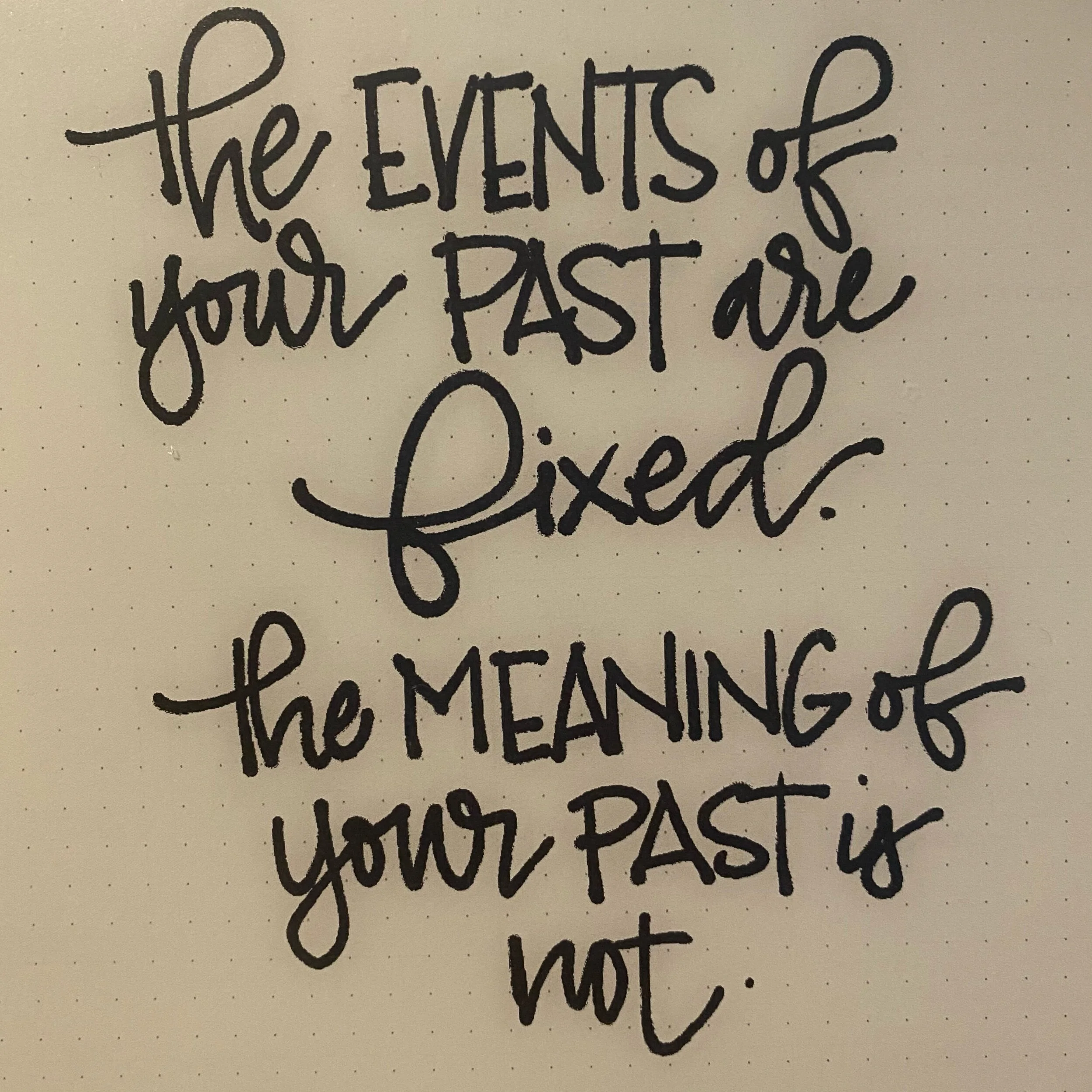So much of our life is defined by the stories we tell ourselves. It is the narrative we build around us. Which means we can change the narrative.
James Clear, the author of Atomic Habits, tweeted last year:
The events of your past are fixed. The meaning of your past is not.
The influence of every experience in your life is determined by the meaning you assign to it.
Assign a more useful meaning to your past and it becomes easier to take a more useful action in the present.
So often in our lives we assume truths about ourselves without questioning them. Especially ones from our past. But a growth mindset asks us to revisit that, and keep evolving our ideas of ourselves - keep writing our new narratives. This can especially be the case around seminal or polarizing events of our past. The saying goes, it isn’t what happens but how you react to it. But what if how you react to it evolves over time? What if you assign it a new meaning in your story? How can it move you forward?
Especially as we as a society to start to emerge from the devastation of the last year in a pandemic, individuals will be different. We have lived very different lives, often apart from each other. We should be aware of each other’s stories, but also our own. The New York Times had a piece this last week titled “You Can Be a Different Person After the Pandemic.”
But don’t let it restrict you to the pandemic - you can always grow as a person, telling yourself (and others) a new story about the events of your past. It’s our life; let’s tell the story we want to tell.
